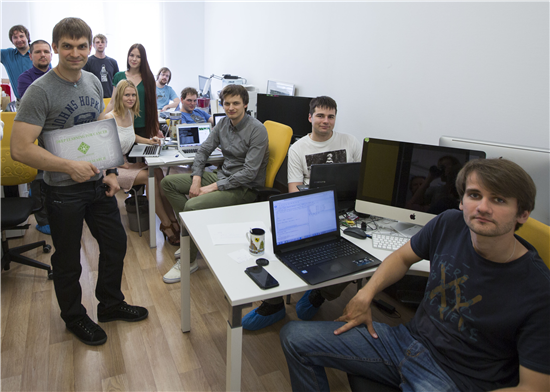Can artificial intelligence help us live longer? In the battle against ageing, AI researchers have often puzzled over what implications the technology can have in life-extension research — an area actively researched in computational medicine. With big data and breakthroughs in computing power and personalised medicine, the field of biogerontology has received a boost.
For example, Google launched their health unit Calico which focuses on anti-ageing, headed by Daphne Koller. Meanwhile, Facebook, too, talked about a similar program to cure diseases and reverse ageing. PayPal founder and Silicon Valley investor Peter Thiel is also a longevity enthusiast and has taken a keen interest in anti-ageing research by supporting the SENS Research Foundation with an aim to reimagine ageing and sponsoring blood transfusions from young to old patients.
Meanwhile, the Indian health tech ecosystem is ripe for disruption with the growth in precision medicine and the use of bioinformatics, used to screen and detect cancer and provide testing methods to determine the probability for the occurrence of a hereditary disease. According to a recent study, around one-third of India’s biotechnology firms, disrupting the ecosystem are based in Bengaluru.
Also, AI-led development in ageing research will help discover breakthroughs in the age-related disease like cancer, regenerative medicine, Alzheimer’s and Parkinson’s and this data will be further aggregated to make major advances in biogerontology.
How Big Data Is Changing Genetic Research
Advances in AI and ML techniques have already changed the way medicine is practised and is helping scientists in biomedical sciences. Now, with a rapidly ageing population on hand, scientists want to find out how AI can impact humans.
India is seeing a surge in life sciences companies with big data changing genetic research and new biomedical techniques, like next-generation genome sequencing, spawning petabytes of data and transforming the scientific landscape. Recent advancement in biomedical and life sciences, the constant flow of data and the algorithmic approach are helping scientists in India offer personalised healthcare solutions.
For example, Chennai-based Xcode Life Sciences is notably India’s first bioinformatics company to introduce a DNA-based anti-aging skincare program for women. The program is known as Come Alive and is one of the most successful and promising bioinformatics companies in the country. The company also provides other services such as Gene Health — a health module that identifies genetic markers of diabetes, obesity and heart conditions leading to preventive care and treatment. The genomics company first made news for launching its innovative DNA Ancestry test that allows people to trace their ancestry by matching it with more than 35 ethnic groups in India and other groups across the world and also the most recent paternal ancestor.
On the other hand, Bengaluru-based Ganit Labs (a public-private partnership initiative between the Institute of Bioinformatics and Applied Biotechnology and Strand Life Sciences) is widely known for using uses big data and integrated analysis to solve scientific problems. The lab uses a range of analytical tools, and methodologies for next-generation sequencing and microarray data to advance research in an aggressive group of tumours that lead to cancer. The startup founded by Binay Panda uses ML and deep learning algorithms to better understand gene functions and is also at the helm of democratising science and promotes open science by publishing its data, code, manuscripts and methods completely open by posting on bioRxiv and arXiv.
Chennai-based startup Kyvor Genomics works in personalised medicine and cancer genomics has developed a platform for cancer treatment and provides physicians with an actionable report of personalised solutions unique to each person’s cancer aiming to reduce the exorbitant cancer mortality rate. Kyvor offers whole exome sequencing technique to analyse the patient tumour’s genetic make- up and match with relevant therapies including drug metabolism using proprietary algorithms and data analytics engine.
Combining Artificial Intelligence And Anti-Ageing Research

One of the most talked about firms in anti-aging sphere is American biotech company Insilico Medicine founded by Alex Zhavoronkov. It leverages advanced AI to check tens of thousands of signalling pathways and how they can be youthfully restored. Their project OncoFinder received critical acclaim as the researchers developed an algorithm to analyse the molecular activity of pathways involved in both normal and pathological conditions, from growth and development to ageing and cancer. This algorithm was further used to predict drugs that can be used for cancer, an ageing related disease and develop other pathways for age-related diseases.
According to Zhavoronkov, modern AI technology has the capabilities to capture the data related to ageing process. Zhavoronkov emphasises AI can play a pivotal role as the building block in biotechnology. His company aims to develop a system which can effectively monitor the human health status and provide corrective measure for any deviations from the ideal healthy state with lifestyle or therapeutic interventions in the next five years.
In an interview with TechTrends, the scientist revealed how AI is helping reimagine anti-ageing research:
- Most clinical trials in India and internationally are tested on mice which fail in human clinical trials. However, Insilico Medicine tied up with a leading Shanghai-based pharmaceutical R&D provider WuXi AppTec to create advanced end-to-end AI solutions to find out the right pre-clinical candidates.
- Instead of relying on expensive laboratory infrastructure, Zhavoronkov leveraged AI to optimise the drug development process and devised experiments to further test novel molecular generators and generate valuable data for the AI-powered drug discovery.
- The AI-led approach shortened the cycle times and also helped them find optimal pre-clinical candidates.


























